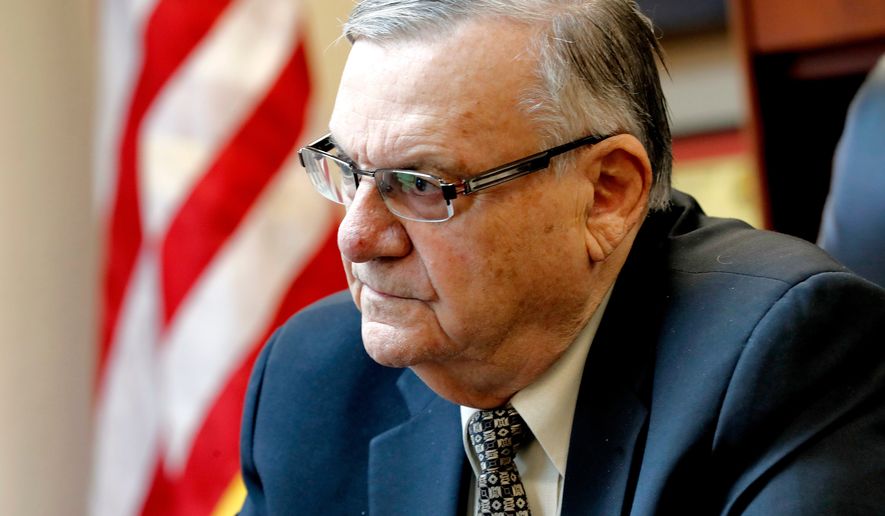A federal appeals court said this week it will appoint a lawyer to argue that former Sheriff Joe Arpaio’s contempt of court conviction should remain on his record, despite President Trump’s pardon.
The 9th U.S. Circuit Court of Appeals said that since the federal Justice Department is supporting both the pardon and Mr. Arpaio’s request to have his conviction stricken, someone else needs to argue the other side.
Mr. Arpaio argues that the pardon came before he had a chance to appeal his conviction, and even before the federal district judge in the case had a chance to rule on his request that it be set aside. Opponents of the former sheriff of Maricopa County, Arizona, had said not only should the conviction stand, but the pardon should be deemed invalid because it subverted the justice system.
The district judge split the argument, ruling the pardon was valid but leaving the conviction on Mr. Arpaio’s record.
Mr. Arpaio has appealed, and the Justice Department has sided with him.
The 9th Circuit, in a 2-1 decision, acknowledged there’s no precedent for what it’s doing. “However, we see no reason why such appointment should not take place,” the court said in an order Tuesday.
It has yet to name the special prosecutor.
Judge Richard C. Tallman, an appointee of President Clinton, dissented from the decision, saying the case is essentially over and naming a special prosecutor now could fan claims that the pardon itself was invalid.
“I fear the majority’s decision will be viewed as judicial imprimatur of the special prosecutor to make inappropriate, unrelated, and undoubtedly political attacks on presidential authority. We should not be wading into that thicket,” Judge Tallman wrote.
Liberal pressure groups, who had pushed for the special prosecutor, said they hope the special prosecutor does raise all the issues Judge Tallman warned about.
“The court can only resolve this appeal after assessing whether the pardon was constitutional,” said Justin Florence, legal director of Protect Democracy, one of the groups opposing Mr. Arpaio. “This pardon infringes on the constitutional rights of private litigants and the power of courts to uphold the Constitution, and so is outside the President’s constitutional authority.”
The case comes as Democrats in Washington fear Mr. Trump may use his pardon powers to undercut special counsel Robert Mueller’s probe into the 2016 election.
The president last week issued a pardon — the third of his tenure — to former Bush White House official I. Lewis “Scooter” Libby, who was convicted of obstruction of justice in a previous special counsel probe.
• Alex Swoyer can be reached at aswoyer@washingtontimes.com.




Please read our comment policy before commenting.